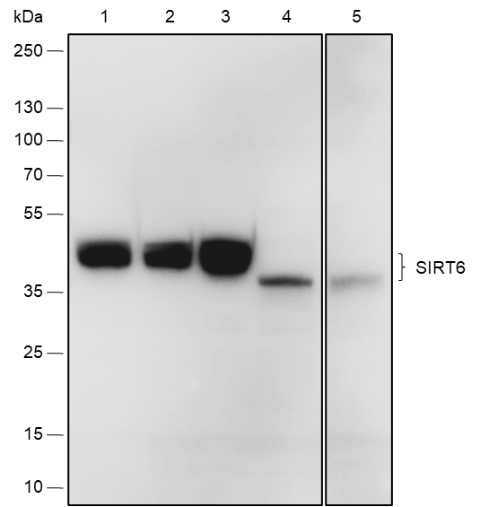Background
SirT6, a mammalian homolog of Sir2, is a nuclear, chromatin-associated protein that promotes the normal maintenance of genome integrity mediated by the base excision repair (BER) pathway. The BER pathway repairs single-stranded DNA lesions that arise spontaneously from endogenous alkylation, oxidation, and deamination events. SirT6 deficient mice show increased sensitivity to DNA-damaging agents, including the alkylating agents MMS and H2O2. In addition, these mice show genome instability with increased frequency of fragmented chromosomes, detached centromeres, and gaps. SirT6 may regulate the BER pathway by deacetylating DNA Polβ or other core components of the pathway.
Cellular location
Nucleus, Endoplasmic reticulum


